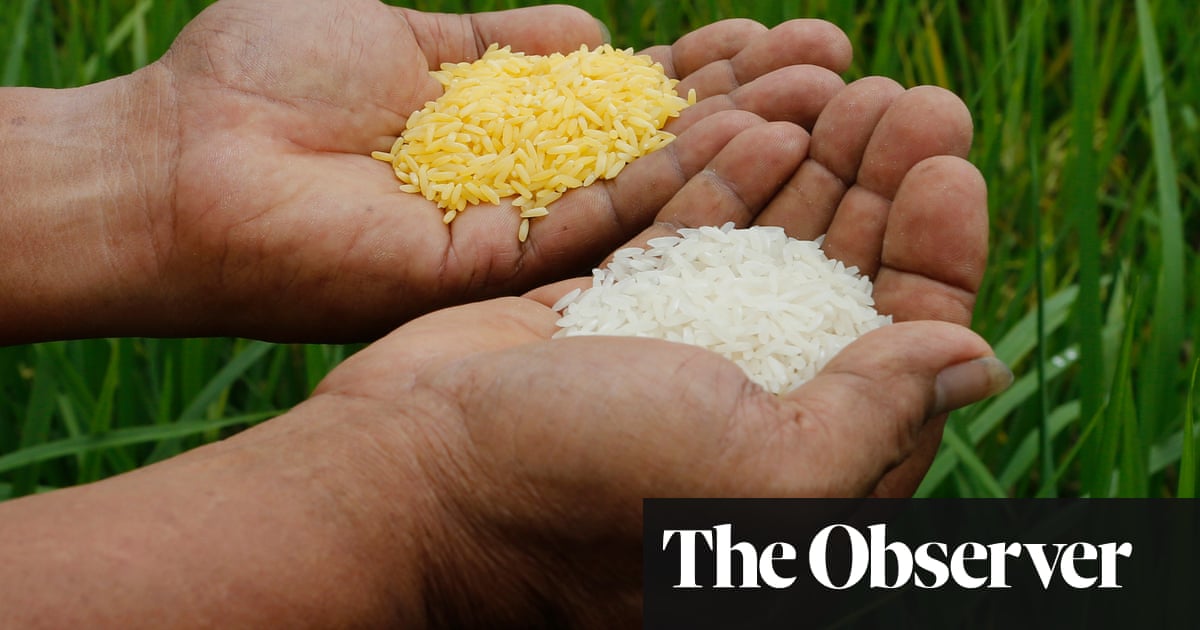Thousands of children could die after court backs campaign group over GM crop in Philippines, scientists warn
Scientists have warned that a court decision to block the growing of the genetically modified (GM) crop Golden Rice in the Philippines could have catastrophic consequences. Tens of thousands of children could die in the wake of the ruling, they argue.
The Philippines had become the first country – in 2021 – to approve the commercial cultivation of Golden Rice, which was developed to combat vitamin A deficiency, a major cause of disability and death among children in many parts of the world.
But campaigns by Greenpeace and local farmers last month persuaded the country’s court of appeal to overturn that approval and to revoke this. The groups had argued that Golden Rice had not been shown to be safe and the claim was backed by the court, a decision that was hailed as “a monumental win” by Greenpeace.
Many scientists, however, say there is no evidence that Golden Rice is in any way dangerous. More to the point, they argue that it is a lifesaver.



Rice is great because it is something they already eat and know how to cultivate. This is about as direct and unobtrusive support of developing nations can be.
What about when rice prices crash and local small scale farmers go out of business?
Why would I keep following the moving goalposts if you won’t even admit the previous point was reasonably addressed?
I don’t follow. What goal posts have I shifted? I don’t deny that rice is easy. My point is that it’s a shortcut that could have other negative consequences that more funding could avoid.
The question was about why we can’t provide direct support to these countries, and I explained to you why targeting rice makes sense…and then you completely shifted gears to driving farmers out of business with no recognition of this point.
Direct would be doing the farming for them, or handing over food directly. Or sending in workers to train local farmers to grid Vitamin A rich crops.
Rice is a shortcut, and sure it might “work”, but there are other potential long-term externalities at play here, that golden rice alone is insufficient to account for. It would be a plaster covering a surface wound when there is internal bleeding to worry about.
You’re saying to do the work for them, right after saying that giving them different rice to grow will put them out of business. Lol
And, yes, rice is a short cut. It’s unobtrusive as it doesn’t require anyone to change their diet or learn how to grow new things.
You want to go in there, drive farmers out of business by doing the work for them, and then expect everyone to just change their diets based on what you want them to eat.
I just said what “directly” would actually look like after you said to help then directly. I didn’t endorse this approach necessarily. My point is that getting them to grow our GM crop is not “direct”.
I feel that you’re intentionally trying to one up me instead actually have a proper discussion here. Why not assume my intention here is to change my mind because together we might actually figure something out? This back and forth is all a waste of time otherwise.
My actual opinion is that we give them monetary aid conditioner on certain outcomes, and send in experienced people to support transitions to more sustainable and productive food production. The money can upgrade housing, farming and transport infrastructure, and help boost Vitamin A rich crop yields and sale prices. Also subsidize imports if Vitamin A rich foods to make up the difference if local yields are insufficient.
Expensive, hard work, job creating activities, instead of shortcuts.
Projection of the day, my friend. I’m sorry that the only example you actually floated immediately contradicted your previous position of not driving farmers out of business.
Except there are kids whose lives and health we can save, right now, if we just start growing golden rice. Why this insistence on letting children die while you come up with a concrete solution that will take years to implement?
I don’t mean this as an insult, just a statement of fact: you are very ignorant about this whole thing. You don’t think people have considered bringing in and growing high beta-carotene foods before? It’s not so simple. We are talking about extremely poor people and areas here, where there is little or no infrastructure to support this as a long-term solution. However, they know how to grow rice, they eat rice, it requires them buying nothing else, it requires them setting up nothing new, it’s a great solution that fits seamlessly into the current framework, and it’s relatively cheap.
What you are suggesting requires drastic change and a lot of upfront money, and continued on-going long-term support and financial assistance. Not only that, but it requires touching so much that the change of unintended consequences is extremely high. You worry about driving farmers out of business by giving them license free access to rice. . .but you are all sticking your fingers in most everything about their food logistical chain? It’s not consistent.